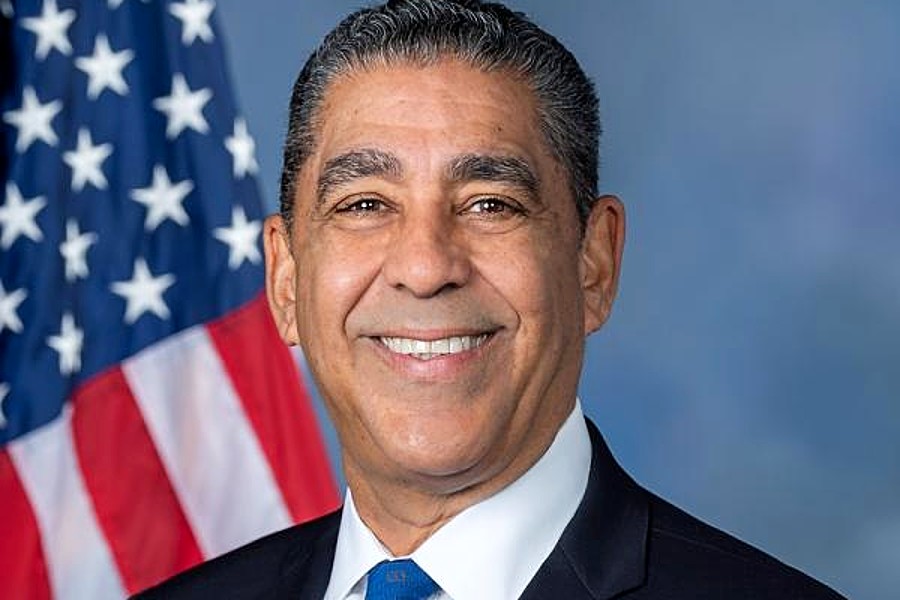
Department of Consumer and Worker Protection (DCWP) Commissioner Vilda Vera Mayuga and Fire Commissioner Laura Kavanagh today reminded retailers.
Reminding retailers that, beginning September 16th, all battery-powered mobility devices, like electric bicycles, electric scooters, and the lithium-ion batteries these devices use, that are sold, leased, or rented in New York City are required to be certified by an accredited testing laboratory in compliance with Underwriters Laboratories (UL) standards. Since June 2023, DCWP has been conducting educational outreach to hundreds of brick-and-mortar retailers across the city as well as online retailers. FDNY has been conducting inspections of bike shops and responding to 311 calls from concerned New Yorkers to increase the enforcement against those who unsafely and improperly use lithium-ion batteries. This year, lithium-ion batteries have caused 170 fires, injured 96 New Yorkers, and killed 14 more.
“DCWP is committed to ensuring that New Yorkers are protected from the dangers of uncertified lithium batteries,” said DCWP Commissioner Vilda Vera Mayuga. “We strive to build a culture of compliance with our city’s laws, and we are committed to helping our local businesses understand and comply with this new regulation. Beginning September 16th, DCWP will make sure that these mobility devices and the batteries they use are properly labeled and certified.”
“The scourge of fires caused by lithium-ion batteries is of grave concern to the FDNY,” said Fire Commissioner Laura Kavanagh. “We know the micro-mobility devices powered by these batteries are already in people’s homes. This new law, and others like it, is designed to keep New Yorkers safe from the threats of improper usage. Our teams have been conducting increased enforcement related to these batteries, and this law is another tool that will allow us to be diligent inspectors of public safety.”
“Access to certified electric micromobility devices and batteries is critical to ensuring the safety of all New Yorkers and supporting the growth of safe, sustainable, and efficient transportation options,” said New York City Department of Transportation (NYC DOT) Commissioner Ydanis Rodriguez. “Through Charge Safe, Ride Safe, NYC DOT is undertaking robust outreach to educate New Yorkers on legal devices and batteries, as well as the construction of new infrastructure—like wider bike lanes and testing safe public battery charging facilities for delivery workers—to encourage the safe use of e-bikes and e-scooters.”
“I am proud to stand with Mayor Adams, City Council colleagues, and delivery workers as we take an important step to protect New Yorkers from fires related to unregulated e-bike batteries,” said Council Member Oswald Feliz, District 15. “We’ve had too many fire-related tragedies due to malfunctioning e-bike batteries, and we cannot allow defective batteries to continue to threaten the safety of New Yorkers. During times of tragedy, we must lead—and that is exactly what we are doing, by requiring that e-bike batteries go through fire safety testing before they are sold. This will help ensure New Yorkers can use them without risking the safety of their homes and family.”
DCWP and FDNY inspectors will work together to share data and locations selling uncertified batteries or devices or charging batteries in an unsafe manner to assist each other in enforcement. Following a brief period of education, businesses that sell, lease, or rent uncertified devices and batteries after September 16th will be subject to civil penalties of up to $1,000 per model. The law applies to the sale or rental of devices and batteries but does not apply to devices already in use unless those devices are resold or rented.
“Lithium batteries are powering numerous consumer tech products we use in our daily lives such as powering laptops, cameras, and smartphones. While there are many places where you can buy certified electric bikes and scooters from reputable retailers that use these batteries; we have to watch out for bad actors who are looking to cut corners,” said Council Member Marjorie Velázquez, Chair of the Committee on Consumer and Worker Protection. “Having worked on legislation addressing some of these issues, and considering the importance of proper maintenance of these batteries, I commend Commissioner Vilda Vera Mayuga and Fire Commissioner Laura Kavanagh for using their available resources to keep these batteries out of the market and making every effort to prevent the next tragedy caused by these faulty batteries.”
“As New Yorkers embrace more sustainable modes of travel, City government must keep proper safety regulations in place to protect health and life,” said Council Member Carlina Rivera, District 2. “Local Law 39 will ensure that lithium-ion batteries and e-mobility devices on the market in New York City are in compliance with recognized safety standards, which is imperative after the many tragic fires that have taken lives and caused serious injuries. The Council will continue to take these fire safety concerns seriously and ensure proper implementation and enforcement of this important law.”
Businesses purchasing batteries or devices to sell should ensure they are certified and display the certification, logo, or name of the testing laboratory on the device, packaging, or documentation that will be provided to consumers at the time of sale. All devices and batteries must be certified in compliance with UL standards if they are being sold, leased second-hand, or rented.
- Electric bicycles must be certified in compliance with UL standard 2849,
- Other battery-powered mobility devices, like electric scooters, must be certified in compliance with UL standard 2272, and
- Lithium-ion batteries must be certified in compliance with UL standard 2271.
This effort is just one component of the Adams administration’s “Charge Safe, Ride Safe: New York City’s Electric Micromobility Action Plan” to encourage safe use of micromobility through innovative pilot programs and the use of new technologies, expanded education and outreach, and updated infrastructure and policies like new bike lane designs and public charging options.
The NYC Department of Consumer and Worker Protection (DCWP)—formerly the Department of Consumer Affairs (DCA)—protects and enhances the daily economic lives of New Yorkers to create thriving communities. DCWP licenses more than 45,000 businesses in more than 40 industries and enforces key consumer protection, licensing, and workplace laws that apply to countless more. By supporting businesses through equitable enforcement and access to resources and, by helping to resolve complaints, DCWP protects the marketplace from predatory practices and strives to create a culture of compliance. Through its community outreach and the work of its offices of Financial Empowerment and Labor Policy & Standards, DCWP empowers consumers and working families by providing the tools and resources they need to be educated consumers and to achieve financial health and work-life balance. DCWP also conducts research and advocates for public policy that furthers its work to support New York City’s communities.
For more information about DCWP and its work, call 311 or visit DCWP at nyc.gov/dcwp
- LISC CEO Michael T. Pugh Recognized Among 2024 Worthy 100 Leaders
- NY Lawmakers Celebrate Historic MENA Data Recognition Bill Signed By Hochul
- Sponsored Love: Leadership Skills Training Courses: Invest In Your Future Today
- Senator Hoylman-Sigal Calls On Independent Schools To Adopt NYC Public School Calendar
- Mayor Adams Celebrates 65 Million NYC Visitors In 2024, Second-Highest Ever
Become a Harlem Insider!
By submitting this form, you are consenting to receive marketing emails from: . You can revoke your consent to receive emails at any time by using the SafeUnsubscribe® link, found at the bottom of every email. Emails are serviced by Constant Contact









